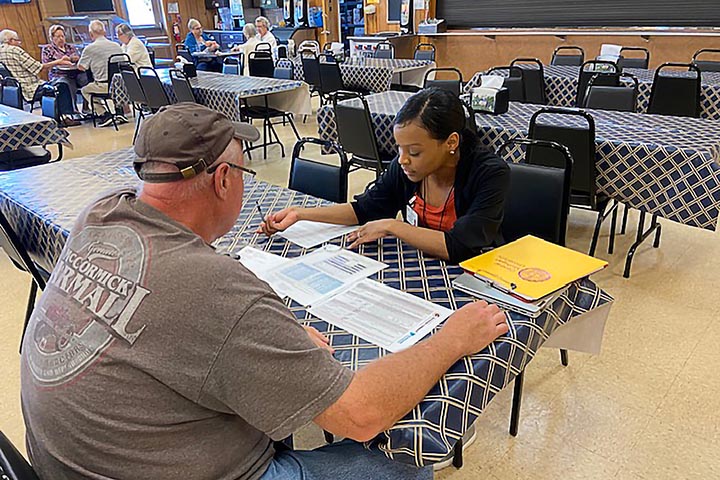
Start up
Passion. Potential. Pitches. Don't miss any of the 2025 New Venture Challenge excitement.
Tune in Friday, April 11 at 1 p.m. for great ideas and fierce competition. Then, join the judges, mentors, spectators and teams as they see who is going home with thousands of dollars in venture financing. The awards broadcast begins at 6:30 p.m. and one team will walk away as the overall best venture.
Central Michigan University’s College of Business Administration is the home of the Isabella Bank Institute for Entrepreneurship and the first Department of Entrepreneurship in the state of Michigan. We are a student-centric hub where experiential, curricular, and external entrepreneurial opportunities intersect.
Our mission is to maximize student success by fostering a campus-wide entrepreneurial mindset that promotes inter-disciplinary collaboration and the creation of new ventures.
We aim to create innovative programming, boost cross-campus and ecosystem collaboration and provide a comprehensive mentoring program.
Our institute provides extracurricular opportunities and is open to all undergraduate and graduate CMU students.
Are you interested in becoming an entrepreneur?
Every journey is unique. Explore the opportunities that interest you.

A better life is possible for people with Parkinson’s Disease, according to a Central Michigan University faculty member. One of the biggest obstacles is arming patients with the information about how to make it happen.
Strengthening ties between patients and support networks is critical, said Jamie Haines, an associate professor in the Physical Therapy Program.
“Making relationships, that’s what this really is about,” Haines said. Relationships lead to trust. Trust can build a bridge to a better life where resources are otherwise lacking.
Haines and four graduate students are wrapping up a year-long project to determine if creating support networks in rural communities boosts the confidence of patients in their ability to manage symptoms. The more rural a community, the more likely that it suffers from a lack of resources.
“The access to experts is very challenging,” she said.
Most people with Parkinson’s Disease who live in rural communities get their care for the disease from their general provider. Those providers are easier to access, but they also provide care for a diverse range of health issues in their communities, Haines said.
People with Parkinson’s need more. They need a team including physical, speech and occupational therapists and movement disorder specialists
“Research tells us people with Parkinson’s need a team,” she said. Those teams just don’t exist in rural areas.
They’ve worked with patients in Mount Pleasant, Alpena and Houghton to determine whether a support network from outside the area can develop trust to help patients do things that will lead to better lives.
The first piece is providing information on the best ways to slow the disease, she said. One of the most effective is exercising regularly.
“Exercise is one of the best thing for Parkinson’s patients,” said Lachane’ Ballard, one of Haines’ students. Getting medications and dosages right is also critical.
Haines’ team met with the patients three times over the year. During those meetings, they assessed patients’ balance, ability to walk and strength. They provided patients with assessment reports and strategies about how to improve.
It’s a bit early to draw any broad conclusions from the research, Haines said. Because Parkinson’s Disease is progressive, people’s conditions deteriorate over time.
For Ballard, the work has offered her invaluable experience working with people with Parkinson’s. She hopes to incorporate that into her work after she graduates next May.
That fulfills one of Haines’ side goals of increasing resources in rural communities by encouraging young healthcare providers to work in them.
Even if it’s too early to draw conclusions about what a good support network should look like or how to resource it, Ballard said there was one benefit to the researchers.
“It’s nice to be able to see our positive impact with them,” she said.

Explore special opportunities to learn new skills and travel the world.

Present your venture and win BIG at the New Venture Challenge.

Boost your entrepreneurial skills through our workshops, mentor meetups and pitch competitions.

Learn about the entrepreneurship makerspace on campus in Grawn Hall.

Present a 2-minute pitch at the Make-A-Pitch Competition and you could win prizes and bragging rights!

Connect with mentors and faculty who are here to support the next generation of CMU entrepreneurs.

Are you a CMU alum looking to support CMU student entrepreneurs? Learn how you can support or donate to the Entrepreneurship Institute.